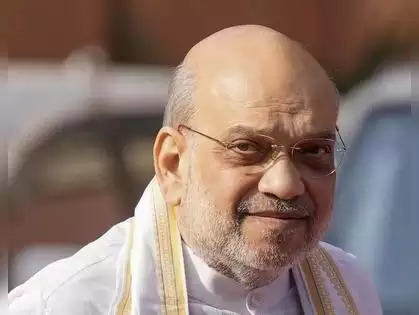A senior Canadian official’s claim that Union home minister Amit Shah was involved in efforts targeting pro-Khalistan elements on Canadian soil was rejected by India on Saturday as “absurd and baseless,” stating that such acts would have “serious consequences” for bilateral ties.

According to Randhir Jaiswal, a spokesman for the external affairs ministry, the Indian side called a representative of the Canadian high commission, which has been without an envoy for some weeks, to raise this issue on Friday. Jaiswal reaffirmed that neither the recent claims that Indian officials were ordering criminal gangs to target Khalistani elements in Canada nor the claims that Indian government agents were connected to the June 2023 murder of Khalistani separatist Hardeep Singh Nijjar have resulted in Canada sharing “any shred of evidence” with India.
The most recent events are expected to exacerbate already strained bilateral relations. Five additional diplomats including India’s envoy to Canada were recently removed when Canadian officials attempted to question them as “persons of interest” in the Nijjar murder inquiry. Additionally, it kicked out the deputy high commissioner and six other Canadian diplomats from New Delhi.
During his October 29 deposition before the Standing Committee on Public Safety and National Security of the Canadian Parliament in Ottawa, deputy foreign minister David Morrison acknowledged that he had told The Washington Post that Union home minister Amit Shah was involved in legal actions against Canadians who support Khalistan. As part of a deliberate effort to undermine India and sway other countries, high Canadian officials have been found to purposefully leak baseless accusations to the world press, which Jaiswal said only supports the Indian government’s long-held beliefs about the political agenda and conduct of the current Canadian government.
“Such careless behavior will have detrimental effects on bilateral relations. Recently informed by the Canadian government that they have been and continued to be under audio and video surveillance,” Jaiswal said in response to a question about the surveillance of Indian officials in Canada.
He stated, “Their communications have also been intercepted. Since we believe these acts to be a blatant breach of the diplomatic and consular norms, we have publicly objected to the Canadian government”. According to Jaiswal, the Canadian government cannot use technicalities to “justify the fact that it is indulging in harassment and intimidation.” “Our consular and diplomatic staff already operate in a violent and extremist environment. The Canadian government’s conduct worsens the situation and goes against accepted diplomatic rules and practices, he added.
Jaiswal criticized the conduct of Canadian politicians and officials in several areas, including the reduction of Indian visas and the termination of the annual Diwali celebrations at Parliament House in Ottawa. The weekly media briefing was dominated by various facets of India-Canada ties. Jaiswal responded that senior Canadian officials had “openly confessed that they are seeking to manipulate global opinion against India” when questioned about Canada’s National Cyber Threat Assessment 2025-2026, which for the first time listed India as a “adversary.” He called the assessment another instance of a “Canadian strategy to attack India.”
In response to rumors that Canada is lowering Indian visas, New Delhi is keeping an eye on the welfare of Indian students and temporary workers who are presently in Canada. Jaiswal stated, “We continue to have serious concerns for their safety and security.”
When asked why Pierre Poilievre, the leader of the Conservative Party and Canada’s leader of the opposition, had decided not to host the country’s yearly Diwali celebrations at Parliament House, Jaiswal responded that it was “unfortunate that the prevailing atmosphere in Canada has reached high levels of intolerance and extremism.” The Overseas Friends of India Canada (OFIC) and other organizations that represent Canadians of Indian descent were deeply disappointed by the decision to cancel the event, which had been conducted for 23 years. When asked about New Democratic Party leader Jagmeet Singh’s efforts to get the 1984 violence against Sikhs recognized as “genocide” by the Canadian Parliament, Jaiswal responded, “this was a component of Canada’s extremism, violent culture, and anti-Indian sentiment. We hope the Canadian government will act against these activities, as this is our main concern”.
Following Canadian Prime Minister Justin Trudeau’s accusation in September 2023 that Indian government operatives were connected to the shooting death of Nijjar outside a Surrey gurdwara, ties between India and Canada have gone haywire. India deemed Trudeau’s charge ludicrous and compelled Canada to remove 41 of its diplomats from the nation. Although New Delhi has insisted it has not received any evidence to support the claims, Canadian authorities have stated they exchanged material with the Indian side.
Read Also: Ammunition Cartridge Found In Air India’s Dubai-Delhi Flight; Probe Underway